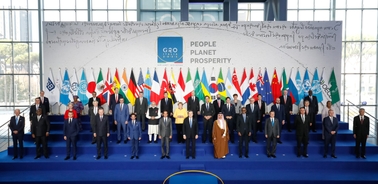- Home
- News And Events
- News
- How Can The G20 Bring Coherence To The Global Ai Governance Ecosystem?
How Can the G20 Bring Coherence to the Global AI Governance Ecosystem?

A new white paper published by the Center for the Governance of Change at IE University as part of its AI4Democracy initiative (available here), provides a comprehensive overview of the current international AI governance ecosystem and offers actionable recommendations for how the G20 can contribute to it.
In the paper, Roxana Radu, Associate Professor of Digital Technologies and Public Policy at the University of Oxford, distinguishes among three types of governance mechanisms, considered on a soft-hard law spectrum. Legally binding instruments and soft law instruments sit at opposite ends of the spectrum, with institutional solidification as the middle ground.
Numerous studies and policy reports have categorized AI’s risks and opportunities, analyzing various legislative measures, yet a comprehensive evaluation of emerging pathways toward global AI governance is currently missing. This white paper aims to fill this important gap by providing an evidence-informed analysis of nascent governance mechanisms, putting them in conversation with ongoing G20 efforts to explore paths forward.
Based on the wide variety of interests it represents and its convening power, the G20 can help streamline the various ongoing processes and minimize unnecessary duplications. Looking ahead at the current Brazilian presidency of the G20 and beyond, Prof. Radu suggests three actionable directions that the G20 can take to make a substantial impact on the evolving AI ecosystem, by:
- Strengthening and operationalizing existing commitments,
- Building a common horizon for AI governance, defining how a responsible and human-centered approach can help overcome current tensions in establishing a global regime for AI, and
- Charting new paths for global AI discussions.
To learn more about our AI4Democracy initiative, visit https://www.ie.edu/cgc/research/ai4democracy/.